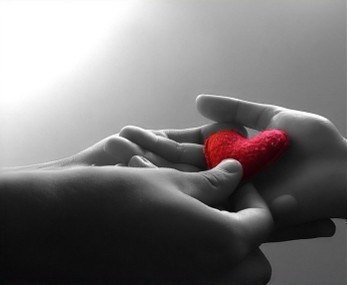
I recently read an article on the PBS website titled If It’s Not a war on Cancer, What Is It? Apparently the Brains of the oncology field have decided that the “War on cancer” metaphor is outdated, kind of like how every generation major companies redesign their logos, like when Pepsi changed their font midway through my childhood. The article then goes on to offer an array of new terms to replace the ‘War on cancer’ metaphor. These new concepts came from top cancer researchers. I kept reading to see what a prominent cancer survivor would suggest as an alternative to the war metaphor. Interestingly, the only experts consulted were researchers, not survivors.
I didn’t find the idea of changing the metaphor unreasonable; I mean I don’t really have a problem with calling the big-picture concept of eradicating a disease a war. It’s a fitting metaphor. But I’m open to new ideas. However, the metaphors presented ranged from obscure to quasai-reasonable. I’m not trying to be cynical here, but I just found the options presented were about as strong as my immune system on chemo and the absence of the survivor perspective was blatant. Here are the proposed replacements for the ‘war on cancer’ metaphor:
A Wildfire. Specifically, one which is currently in the containment phase, but which we need to learn more about in order to put it out.
A Tide. Really? A tide comes in and goes out. It’s a cycle that is ever repeating. The researcher explained that like a tide, cancer is “ever looming” and “there’s a definitive moment when it turns.” However, let’s think big picture here, the tide never goes away. Do you want to characterize a disease as something that is constant and uncontrollable by human power? I don’t.
A Fight for Peace. Personally, I don’t want to make peace with cancer. I don’t want to negotiate with it and settle a score, only to have it turn around and secretly build nuclear bombs in my liver and lungs despite our peace treaty. Most annoying, was the researcher’s note that “It’s not an achievable end but something that’s going to change as we go.” That’s interesting. I thought we were trying to reach an achievable end…the end of cancer.
Our Moonshot Moment. Aside from the fact than an entire generation doesn’t know what this means, this one is actually pretty good. The JFK quote the idea is based on is essentially this: “We choose to go to the moon in this decade…Because that challenge is one we are willing to accept and one we are unwilling to postpone. And one which we intend to win. This is our moonshot moment.” I like the sentiment, but until I read the quote, my thought on the Moonshot Moment heading was “what the…?”
A Battle with Love. Honestly, love isn’t going to get rid of cancer. Cancer is hard and people fighting it need the love and support of their families. However, when it comes to eradicating cancer, either from individuals’ bodies or the population as a whole, love alone just isn’t going to cut it.
A Team Sport. I thought this one had some potential, except I think most people think of team sports as fun, enjoyable, and something you might want to witness if you aren’t playing yourself. Coach, can you bench me? I don’t want to play the Cancers today.
A Multi-Fronted War. Wait a second…I thought the point of this exercise was to get rid of the war metaphor? This Johns Hopkins doc actually did a nice job proving why the war metaphor was still relevant. Way to go. I think overall I agree with Doctor Vogelstein. Here’s my perspective on why cancer is a whole lot more like a war than it is a wildfire, tide, fight for peace, moonshot moment, battle with love, or team sport.
Cancer is like a war for a lot of reasons.
1. People die. There are casualties in wars. Until there is a cure, people with cancer are like soldiers, drafted against their will to fight until their duty is served, or until the war kills them.
2. Families fight together. Cancer is rarely done alone. While the soldier fights on the battlefield, family can only wait, watch, and hope that their loved one makes it through and although they may never be the same because of the war, if you’re lucky, they survive.
3. It’s ugly. The military shaves heads, and chemo takes hair too. Beyond the literal, war is grisly, taxing, and pushes the limits of the human spirit to the brink of destruction. Cancer does this, too.
4. Within a war, there are battles. Fights are won or lost on a small scale, and these contribute to the overall effort. Wins in battle can bring the soldier home sooner. A loss leads to more planning and a new strategy. A successful surgery, radiation technique, or chemo can lead to remission and health. While a tumor not responsive to a drug forces doctors and patients to strategize and determine the next best option.
Perhaps the reason oncology experts find the war metaphor outdated is because they’ve never been a foot soldier, drafted against their will. Just like politicians argue semantics, the oncology experts are failing to see that there is nothing wrong with the metaphor. For each patient diagnosed, the war is fresh, raw, and well, a war. I like the war metaphor best because it doesn’t need an explanation. War is universal. Everyone gets it. There’s no room for misinterpretation or semantics. We want to win. We want cancer to lose.
So why not call it what it is? If you really want to change the metaphor, talk to the people fighting the war. If you could change the ‘war on cancer’ metaphor, what would you call it?












